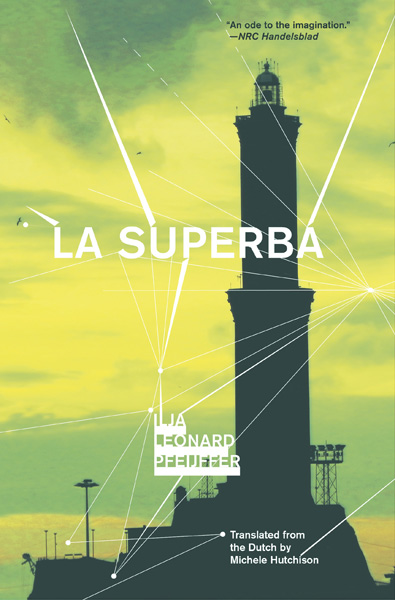La Superba
“Genoa’s
old nickname is La Superba. You can interpret the name in two different
ways and you understand this best when you approach the city from the
south, across the sea. All of a sudden there she is: a beautiful piece
of scenery with towering palazzi in a mountain basin. But while you are
enjoying it, you realize that the pomp and glory form an impenetrable
wall. She is beautiful and heartless. She’s a whore who beckons but
whom you can never make your own. She is alluring and reckless. She seduces
and destroys. Like the rats lured into traps with poison that tastes like
honey. In that sense, Genoa, La Superba, symbolizes Europe as a whole.
Behind her wall of impenetrable walls of border checks, asylum procedures,
investigators, and forced expulsions, she lies there showing off her promise
of new Mercedes and BMWs. Anyone managing to force their way in takes
this as reason enough to believe they’ve achieved their dream. They’re
in paradise. The rest will follow as a matter of course. And then they’ll
wither away in a leaky two-room apartment with eleven of their countrymen
and be exterminated like a rat.”

That passage is from LA SUPERBA, a new novel by Ilja Leonard Pfeijffer,
a Dutch writer who has lived in Genoa for the past seven years. Pfeijffer’s
knowledge of the city is encyclopedic; he seems to have walked every one
of its labyrinthian streets and alleys, visited all of its neighborhoods,
bars and trattorias.
But the author doesn’t pretend to truly know Genoa. Only the Genoese,
the natives whose roots date back thousands of years, possess that kind
of understanding. They guard it zealously, speaking in a dialect which
bears little resemblance to Italian, running things their own way, keeping
their secret world to themselves. As one local tells the first-person
narrator of the novel, “It’s a fantasy that Genoa is part of
Europe.”
The action
in LA SUPERBA is episodic and picaresque. Black comedy abounds, commencing
when Pfeijffer (a famous poet in his own country who has opted to live
anonymously in Genoa) finds a sawn-off woman’s leg in a garbage bin.
He takes the leg home (for what he believes are valid reasons) and freezes
it. Soon after that, he falls in love with The Most Beautiful Woman in
Genoa (a waitress), gets involved in a shady scheme to buy a theater and
direct a play about emigration. He also befriends a Moroccan beggar who,
although he has a temporary residence permit, is unable to find legal
work in Genoa and must scrounge for a living along with the thousands
of other Moroccans and Senegalese who have washed up here.
History, myths and ghosts saturate the pages of LA SUPERBA. The city,
after all, was the port from which twenty million Italians departed for
“La Merica” over an eighty-year period. Long before that, tens
of thousands of Crusaders sailed out of Genoa in their billowing galleons
“to head east in the name of the one true belief with the flaming
swords of the only true God to free Jerusalem from the dark hordes with
their scimitars kneeling before a false prophet.”
Genoa was also the medieval city where the plague–the Black Death–first
broke out. “And from Genoa, the sickness spread across...the rest
of Europe,” Pfeijffer writes. “The Black Death would be responsible
for millions of victims in the fourteenth century, and decimated Europe’s
population.”
Tragedy and comedy, life and death, sex and love–these are just a
few of the themes explored by Pfeijffer in his wise, brave, gripping novel.
(Deep Vellum Publishing, deepvellum.org)
